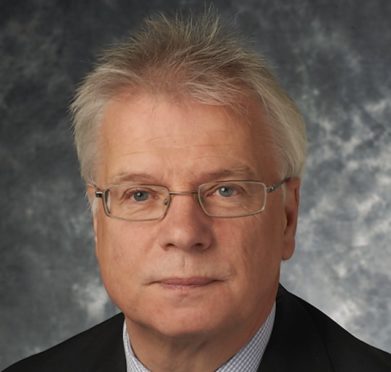Inverness could host a summit to help shape future legislation on land ownership in Scotland.
The idea is part of Highland Council’s response to the Scottish Government’s radical plans for land reform.
The authority has welcomed the parliamentary Bill being considered by the Scottish Rural Affairs, Climate Change and Environment Committee and has requested permission for Inverness to stage an “evidence session” for ministers as part of the process.
In the meantime, a workshop is being established for councillors. Representatives of a wide range of other organisations will also be invited to take part.
In a passionate plea to colleagues, Wester Ross, Strathpeffer and Lochalsh SNP councillor Ian Cockburn declared the forthcoming legislation “one of the most important Bills ever to come through a Scottish Government.”
He said: “The idea of a workshop is a terrific idea and if the 80 councillors are not here for something like land reform there is something far wrong.
“It’s a good start, but we’ve got to go through it in detail and it’s so important for the Highlands. If councillors don’t turn up for this workshop, to me, they’re not Highland councillors.”
Liberal Democrat group leader David Alston highlighted an omission from the government’s current proposals.
He said: “When its land reform review group reported, and as a council we were very much in support of its recommendations, part one of their recommendations was that Scottish Government should make it ‘incompetent’ for any legal entity not registered in a member state of the European Union to register a title to land.
“That’s not about restricting who can own land. It’s fundamentally about the transparency of who owns land because the only way we can do something about the misuse of land is by knowing who owns it.”
Mr Alston said the element was missing from the current Bill that could become law.
“I hope the committee will confirm when the council gives evidence we will be arguing for the inclusion of that provision, which I believe is very important,” he said.
Highland planning director Stuart Black cited an example that supports Mr Alston’s argument.
He said: “We’re dealing with some issues in the centre of Inverness and we’ve discovered that a key building is actually registered to owners in the Cayman Islands. It’s very hard to track down these individual owners, so it is a live issue for us.”
Former planning chairman, Inverness Lib Dem councillor Thomas Prag suggested the council does not engage significantly with landowners.
“Sometimes it happens at community level, sometimes it doesn’t,” he said.
He urged the council to communicate more often with estate owners.
“I think that’s what this Bill is about,” he said. “If that can be part of the workshop I’ll certainly be there.”
East Sutherland and Edderton SNP councillor Graham Phillips told colleagues on the planning committee that he had recently been discussing that precise point with the Sutherland Estate.
“Elsewhere,” he said, “there are shockers, where the landscape is entirely devoted to shooting and fishing, and the landscape is utterly sterile.
“You know when you’re in a landscape where people are genuinely working – and you know when you’re in a landscape where they’re not. And people are still, to be honest, cleared away from it, which works contrary to the interests of the local community.
“The whole principle of land reform is fundamental to how we take our country forward, particularly in sporting estates where much of the north appears to be a tax dodge for gains and not for the benefit of the locality.”
